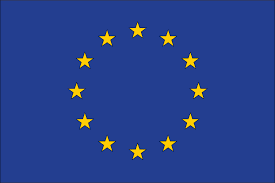Chemycal has been acquired by 3E
Learn MoreChemycal has been acquired by 3E
Learn MoreDiscover how Chemycal PRO helps you boosting your regulatory monitoring:

The European Parliament has endorsed legislative plans for an upcoming EU supply chain law aimed at holding larger companies accountable for human rights violations. However, the finalized regulations are yet to be confirmed.
According to the Parliament's decision, businesses operating within the EU will be required to ensure that their products are manufactured in line with human rights standards. The proposed EU supply chain law, supported by 366 Members of Parliament, aims to make large corporations responsible for upholding human rights and environmental protection throughout their global supply chains. The Parliament further reported that 225 lawmakers opposed the proposal, while 38 abstained.
Securing Human Rights and Environmental Protection
The draft directive includes provisions to hold EU companies liable for child labor, forced labor, and environmental pollution caused by their international suppliers. It is also planned to enable companies to be held accountable before European courts if they fail to comply.
The EU member states had already established their position on the initiative by the end of last year. The Parliament and member states now need to reach a common compromise on the matter.
The Members of Parliament aim to include more companies within the scope of the supply chain law than initially planned. Thus, the requirements would apply to EU companies with over 250 employees and a global turnover exceeding 40 million euros.
German Supply Chain Law is (so far) Less Stringent Originally, the draft proposal from the European Commission, introduced in early 2022, only targeted companies with more than 500 employees and a turnover of over 150 million euros. Stricter regulations were only intended for corporations operating in sectors with a higher risk of exploitation and environmental destruction, such as the textile industry, mining, or agriculture.
If the EU regulations are implemented in a similar manner, they would be stricter than the German Supply Chain Law currently in effect since 2023, which applies to companies with more than 3,000 employees in Germany.
SORUCE: www.oekotest.de
2013 © MyChemicalMonitoring. ALL Rights Reserved. About Us | Terms and Conditions